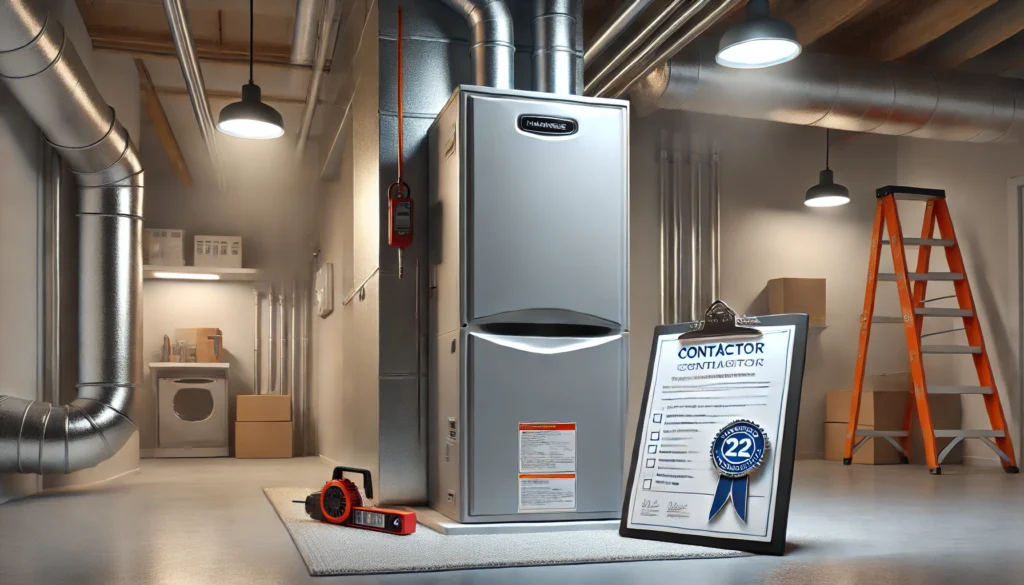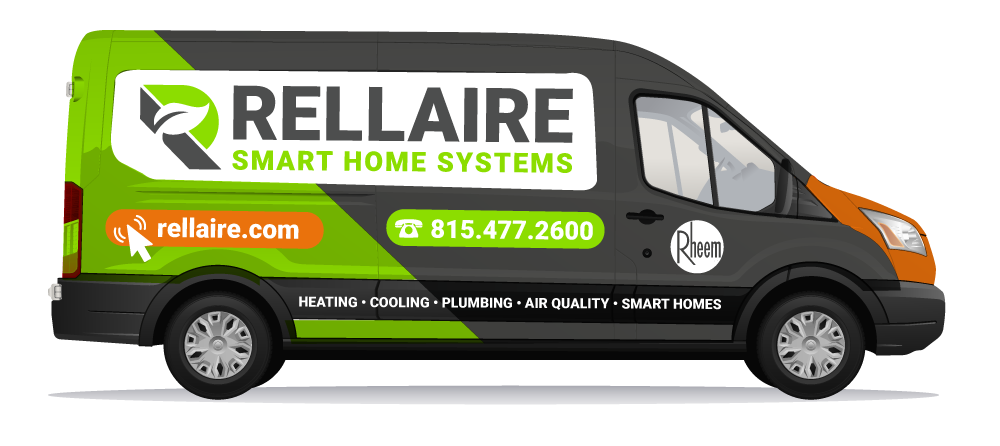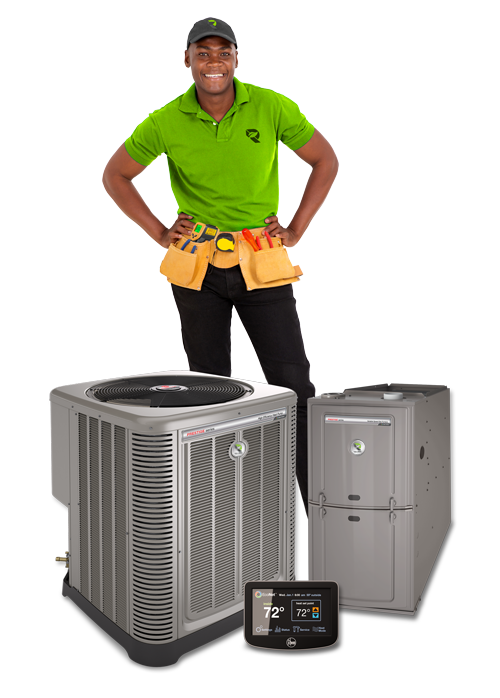Importance of Expert Installation
The installation of a furnace is a complex process that requires specialized knowledge and skills. Choosing a contractor with expert installation capabilities is crucial for several reasons, each impacting the overall performance and longevity of your heating system.
Ensuring Proper Sizing and Fit
One of the most critical aspects of furnace installation is selecting the right size and type of furnace for your home. An expert installer will perform detailed calculations to determine the heating requirements of your space, considering factors like square footage, window placement, insulation quality, and even local climate conditions. Incorrect sizing can lead to inefficient operation, higher energy costs, and premature system failure.
Safety Concerns
Furnaces, particularly those that run on gas or oil, involve complex components that, if improperly installed, can pose serious safety risks including carbon monoxide poisoning or fire. Professional installers are trained to handle these components safely, ensuring that all connections are secure and that the unit operates within safe parameters. They also check for leaks and test the furnace to confirm that all safety controls are functioning correctly.
Maximizing Energy Efficiency
Proper installation affects the energy efficiency of the furnace. An expertly installed furnace will operate at the peak efficiency promised by its rating, which conserves energy and reduces heating costs over time. This involves correct duct sealing, proper ventilation, and thorough testing of the thermostat and controls.
Compliance with Local Codes and Regulations
Professional furnace installers are familiar with local building codes and regulations. Compliance is not only important for safety and efficiency but also essential for maintaining valid warranties and avoiding legal issues that can arise from non-compliance.
Longevity and Durability
A furnace that is correctly installed will generally have a longer lifespan and require fewer repairs. This is because it will operate under optimal conditions from the start, which puts less strain on its components. Expert installers will also provide valuable advice on routine maintenance that can further extend the life of the furnace.
Ultimately, the importance of expert installation cannot be overstated. It’s the foundation for a safely functioning, efficient, and durable heating system in your home. Investing in skilled installation services ensures that your furnace will provide reliable warmth and comfort for many years to come.
Verifying Contractor Credentials
Selecting a contractor with the right credentials is a vital step in ensuring that your furnace installation is done professionally and safely. Here’s a guide to help you understand why verifying credentials is important and how to do it effectively:
Licensing
Most regions require HVAC contractors to be licensed. This confirms that the contractor has met minimum education and training standards set by regulatory bodies. A licensed contractor is more likely to be knowledgeable about the latest industry standards, building codes, and safety protocols. You can usually verify a contractor’s license through your local licensing board or a similar regulatory authority.
Insurance and Bonding
Ensure that your contractor has liability insurance and is bonded. This protects you from potential liabilities in case of accidents or damage during the installation process. Insurance and bonding also serve as indicators of a contractor’s legitimacy and professionalism. You can ask to see proof of insurance and bonding, which should be current and sufficient to cover the scope of your project.
Certifications
Additional certifications can indicate a higher level of expertise and specialization. For instance, certifications from the North American Technician Excellence (NATE) demonstrate that a technician has a proven understanding of HVAC systems and has passed rigorous exams. Another reputable certification is from the Environmental Protection Agency (EPA), especially concerning the handling of refrigerants.
References and Reviews
Checking references and online reviews can provide insights into the contractor’s reliability and quality of work. Previous customers can offer firsthand accounts of their experiences with the contractor’s professionalism, punctuality, communication, and after-installation service. Pay attention to both positive and negative reviews to get a balanced view.
Experience
Experience specifically in furnace installation is crucial. The more installations a contractor has completed, the more likely they are to handle unexpected issues competently. Ask about the types of furnaces they have installed, especially if your system involves newer or more complex technology.
Verifying these credentials will help you choose a contractor who not only meets legal and professional standards but also one who is capable of providing high-quality, reliable service. This diligence in selection contributes significantly to the long-term performance and safety of your furnace installation.
Enhancing Your Home’s Heating System
Optimizing your home’s heating system goes beyond the initial installation of a furnace. There are several enhancements and upgrades you can consider to improve efficiency, comfort, and overall performance. Here are key strategies to enhance your home’s heating system:
Upgrading to a High-Efficiency Furnace
If your furnace is older, upgrading to a high-efficiency model can significantly reduce your energy consumption and lower your heating bills. Modern furnaces are designed to provide more consistent heat while using less energy, thanks to advancements in technology like modulating flame burners and variable speed blowers.
Improving Ductwork
Inefficient ductwork can lead to significant heat loss, with leaks and poor insulation forcing your furnace to work harder and less efficiently. Sealing ductwork leaks and insulating ducts, especially those that travel through unheated spaces, can dramatically improve the efficiency of your heating system. Consider having a professional HVAC technician perform a duct analysis and tune-up.
Installing Programmable Thermostats
Programmable thermostats allow you to customize heating schedules based on your daily routines, ensuring that you’re not wasting energy heating an empty home. More advanced smart thermostats can learn your habits over time and adjust settings for optimal comfort and efficiency, and can even be controlled remotely via smartphones.
Zoning Systems
Implementing a zoning system can significantly increase the efficiency and comfort of your heating system by allowing you to heat different parts of your home independently. This is particularly useful in larger homes or homes with areas that do not require constant heating. Zoning prevents energy waste and ensures that every room is at a comfortable temperature.
Regular Maintenance
Regular maintenance is crucial to keep your heating system running efficiently. This includes routine checks like replacing air filters, cleaning vents, checking for duct leaks, and ensuring the furnace burner and ignition system are clean and functional. Annual inspections by a qualified technician can help catch issues before they become costly problems.
Adding Humidification
During the winter, the air inside your home can become particularly dry, which not only feels uncomfortable but can also make your home feel cooler than it actually is. Integrating a humidifier with your heating system can help maintain optimal humidity levels, enhancing comfort and helping you feel warmer at lower temperature settings.
By considering these enhancements, you can ensure that your heating system is not only efficient but also tailored to the specific needs of your home and lifestyle. Such upgrades not only improve comfort and system performance but also contribute to long-term savings on energy costs.



